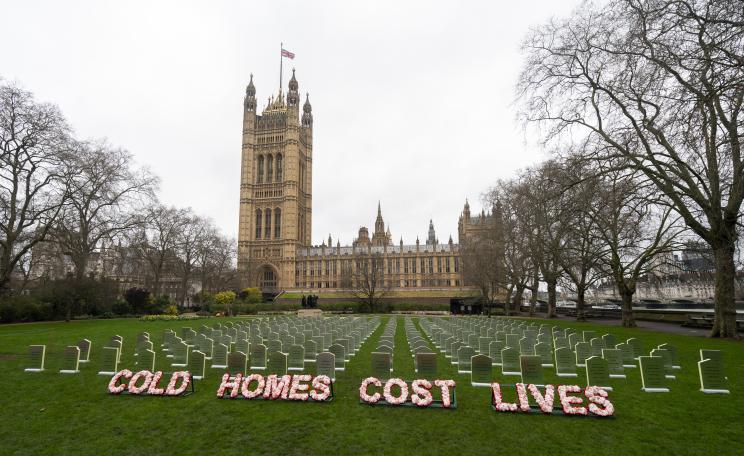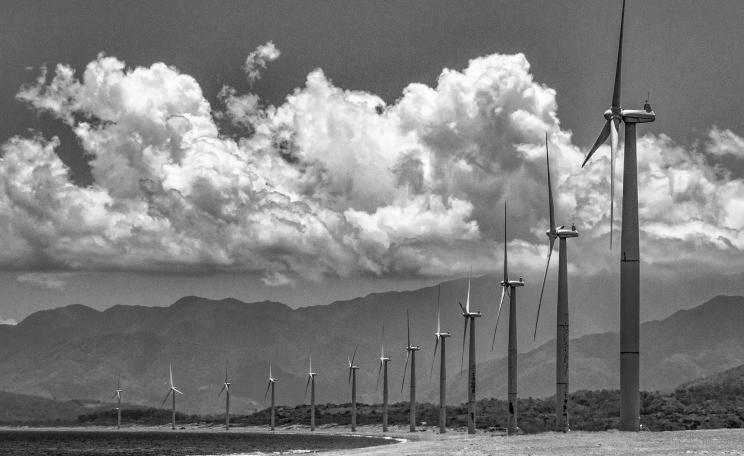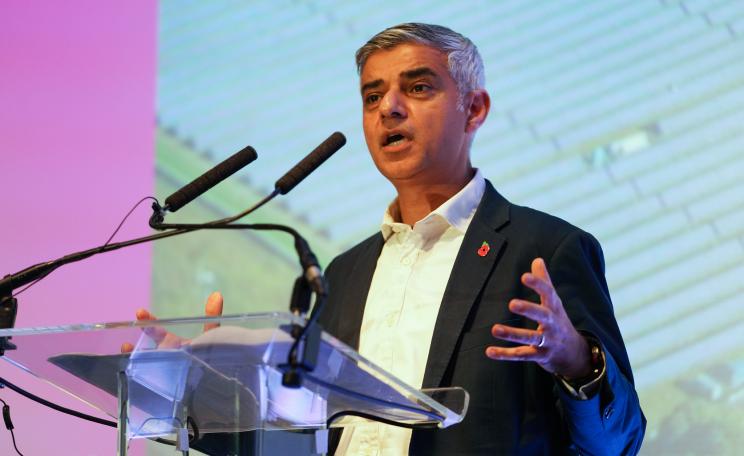Decarbonising economies is very difficult. These are decades-long processes. And the political time-horizon at the moment in the UK is about three hours.
“We have to do things very differently - it’s not about celebrating electric vehicles,” transport researcher Professor Jillian Anable told the Royal Meteorological Society’s Climate Change Forum in London last week.
Anable warned cars are “getting bigger and heavier” and therefore “it will take longer to decarbonise the system”. A staggering 46% of new car sales globally are SUVs. For every electric car sold, 10-15 large vehicles are sold.
This article was first published at People and Nature.
They “negate the effect of that electric vehicle many times over”. Moreover, half the electric cars sold are plug-in hybrids, which use “a great deal” of petrol and diesel.
Obsolescenc
Anable, a professor of transport and energy at the University of Leeds, added that no country has “achieved the speed and scale of reductions [in greenhouse gas emissions] that we now need”, And no country has “achieved deep and long-term reductions without restricting car use.”
Anable was one of several researchers at the Forum who addressed the yawning gap between government declarations about climate breakdown, and the snail’s pace of action. This gap has infuriated, and motivated, the new generation of protesters from Greta Thunberg to Just Stop Oil.
Transport, the built environment and the food chain – three areas of gigantic fuel consumption – were covered in detail at the event. Adaptation (coping with the effects of climate change) was considered alongside mitigation (how to minimise the level of global heating).
Built environment researcher Alice Moncaster launched a broadside against the culture of demolish-and-build, as opposed to retrofitting existing buildings.
In the UK, “demolition has nothing to do with structural obsolescence or carbon reduction – it’s all to do with economic development”, she said.
Embodied
Retrofitting existing structures could produce the same outcome in terms of operational carbon efficiency -reducing the carbon emissions needed to use the building - with far fewer emissions at the construction stage.
New buildings were comparable to electric vehicles – a “shiny new thing” that made a “tiny” impact on the carbon problem.
The life of buildings should be extended, and they should be adapted through retrofit, Moncaster, senior lecturer in Sustainable Built Environment at the Open University, argued.
She pointed to the campaign by Save Britain’s Heritage to stop Marks & Spencer from bulldozing its 1929 flagship store in Oxford Street.
Decarbonising economies is very difficult. These are decades-long processes. And the political time-horizon at the moment in the UK is about three hours.
There are huge gaps in regulation, Moncaster said. The European Buildings Performance Directive, on which UK regulations are based, covers neither the operational carbon of existing buildings nor the embodied carbon, the emissions associated with building it in the first place, of any building.
Will
There is both overcrowding and underoccupation, for example, by parents after children have left home of houses, Moncaster pointed out. “That’s an argument not for building more buildings, but for more equality.”
Moncaster presented a list of policy priorities: minimal new building; retrofit not demolition; retrofit for future climates; net zero carbon new build; minimise steel and concrete use; energy is a socio-technical issue.
Time and again during the one-day Forum, the need for “joined-up governance of systems” – as Moncaster called it – was underlined. Otherwise what one hand gives in decarbonisation terms, the other takes away, as with Anable’s example of electric vehicles and SUVs.
I came away from the event thinking about this, and about three other themes.
First: is it enough to talk about a “lack of political will”? In my view, we need to go further.
Time-horizon
Jim Skea, co-chair of the Intergovernmental Panel on Climate Change (IPCC) Working Group III on mitigation, started the Forum with an overview of the IPCC’s sixth assessment report, published in 2021-22.
He said that nations’ emissions reduction pledges were insufficient, but that there was also an “implementation gap”: even the pledges made are not being implemented.
So, after the COP-26 talks in Glasgow last year, rather than talking about whether the glass is half-full or half-empty, “it’s probably more accurate to say that it is three-quarters empty and a quarter full”.
What one single thing would make the most difference, Skea was asked. He replied: “Political will.”
Why wasn’t it forthcoming? Because decarbonising economies is “very difficult. These are decades-long processes. And the political time-horizon at the moment in the UK is about three hours.”
Foisted
As if to underline that point, the news that Liz Truss had resigned as prime minister came in about two hours later.
But Skea hinted at a much bigger problem: that the world’s leading governments are not only unwilling, but – given the way the apparatus of power works – incapable of making the changes necessary.
That begs the question: isn’t a much greater social transformation needed, outside of, and bigger than, the international talks that the IPCC is part of? I think so.
My second theme: how do we put together a meaningful narrative about doing, or having, less, in rich countries?
Jillian Anable put it bluntly: “We are facing a future of less travel. We might as well work out how to do that for the good, rather than have it foisted upon us later.”
Regulation
There are “only two futures – success or failure”, and in both of them, car use declines, she argued. Anable spelled out those two futures in a joint article with Phil Goodwin, published last year.
It states: "Essentially, we either constrain carbon to the required levels by the end of this decade or we fail to do that and we are then in totally unchartered, unpredictable territory of runaway climate change.
A third, impossible, future, she has written, is: "One in which transport increases with smooth economic growth, as the Department for Transport has forecast, but at the same time both national and international economies remain broadly unaffected by either climate change or policies to counter it."
Anable is also very clear that emissions must be reduced in such a way as social inequalities are tackled. “We talk about fuel poverty”, she said, “but many people are in transport poverty: for example living on the outskirts of towns and cities, at the end of bus routes that are expensive and on which the service is poor.”
Anable, Goodwin and others advocate combinations of mode shift - encouraging people to travel by bike, public transport, and so on, rather than cars - and destination shift - reducing the need for journeys, for example by different approaches to urban planning. Regulation is key, they argue; individual action is insufficient.
Consumption
I hope that activists in the labour and social movements will follow closely what researchers of technological systems, such as these, are saying.
University-based researchers in social science disciplines, who write about societal responses to climate change, would also benefit by further consideration of the technological details.
For example, there is a discussion in progress right now – participants include Matthew Huber, Kai Heron and David Camfield – about whether working class struggles for social justice should be combined with “degrowth” ideas.
Basically, Huber says they should not, to which Heron has responded that they should: "Since the Global North’s energy and resource use can not be extended to the rest of the world without exceeding the planet’s biophysical limits, anti-imperialist politics requires that those in the core – including many workers – reduce their overall consumption."
The need for people in the Global North to change the way they live is the subject of a whole book by Markus Wissen and Ulrich Brand.
Alliance
All these discussions would be enriched by paying more attention to the way that the big technological systems in rich countries – of which urban transport systems and urban built environments are among the largest – actually consume fossil fuels.
And the multiple ways that specialist researchers have shown that throughput of fuels, and greenhouse gas emissions, could be slashed, enabling us to live better lives.
My third and final theme: how can we strengthen the alliance of scientists and researchers with social movements?
One way is for scientists to engage in civil disobedience, Aaron Thierry, a doctoral student at Cardiff University, argued in a poster presentation at the Forum.
Neutral
“In addition to documenting the climate crisis in ever greater detail, we are obliged to consider how we might act in new ways to help bring about a necessary and urgent transformation”, Thierry and five other authors said in a joint article published by Nature Climate Change last month, entitled, Civil disobedience by scientists helps press for urgent climate action.
Scientists’ credibility with society depends in part on “whether their actions clearly align with their message”, they argued.
The authors also questioned claims that scientists’ legitimacy rests on “their status as impartial, objective or ‘neutral’ observers”, and that science and politics should remain separate.
"No dialogue between science and society can ever be value neutral, and it should not aim to be.
Disobedience
"The widespread notion that sober presentation of evidence by an ‘honest broker’ to those with power will accomplish the best interests of populations is itself not a neutral perspective on the world; it is instead conveniently unthreatening to the status quo and often rather naive."
That’s well said. I hope it will turn out to be another step towards stronger, organised links between scientists, other researchers and the social movements that will be needed to avert dangerous climate change.
On Friday, the day after the Forum, Thierry and four others were acquitted by Westminster Magistrates Court on criminal damage charges, brought after they glued themselves to the windows of the Department of Business, Energy and Industrial Strategy (BEIS) in April.
Scientists for Extinction Rebellion, of which the five are part, said their action had been “nonviolent civil disobedience to highlight the dangers posed by new oil and gas exploration”.
This Author
Dr Simon Pirani blogs at People and Nature, where this article first appeared, and tweets at @SimonPirani1.







